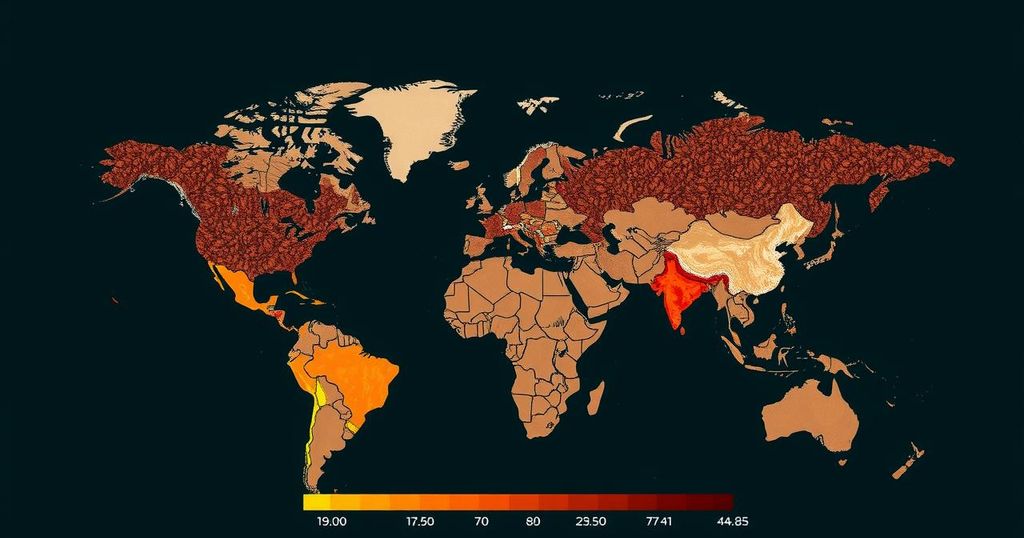The Impact of Climate Change on Global Chocolate Production and Pricing
Climate change is causing cacao tree decline, which raises chocolate prices and highlights the necessity for sustainable cocoa practices in the U.S. and Europe. Changes in temperature and humidity are impacting cocoa production in key regions near the equator, where major cocoa farmers reside, producing 90% of the world’s supply.
Climate change is inducing environmental changes detrimental to cacao trees, subsequently driving up chocolate prices. Increased temperature trends and heightened humidity levels are altering the climatic conditions across the primary cocoa cultivation zones, specifically within a 40-degree latitude range around the equator. This region encompasses countries such as Brazil, Cameroon, Côte d’Ivoire, the Dominican Republic, Ecuador, Ghana, Indonesia, Nigeria, and Peru, which collectively account for approximately 90% of the global cocoa production, yielding around five million tonnes annually, as reported by the Swiss Platform for Sustainable Cocoa. The need for sustainable cocoa cultivation practices in the U.S. and Europe is increasingly critical to mitigate these impacts and secure future chocolate supply.
Cacao trees thrive in specific tropical environments located within 20 degrees north and south of the equator. However, climate change has emerged as a significant threat to this delicate ecosystem, with rising temperatures and variable rainfall patterns negatively affecting the health and productivity of cocoa crops. Given that a majority of the world’s cocoa farmers are concentrated in a few countries, the implications for chocolate availability and pricing are profound. The need for addressing these ecological challenges through sustainable agricultural practices is vital for ensuring the longevity of chocolate production.
In conclusion, the intersection of climate change and cocoa cultivation is leading to serious repercussions for chocolate production, resulting in higher prices and potential shortages. With cocoa beans primarily sourced from a limited number of countries, it is essential for stakeholders in the U.S. and Europe to invest in sustainable cocoa initiatives. Addressing these environmental concerns is not only crucial for preserving cacao trees but also for securing the future of the global chocolate industry.
Original Source: www.perishablenews.com




Post Comment